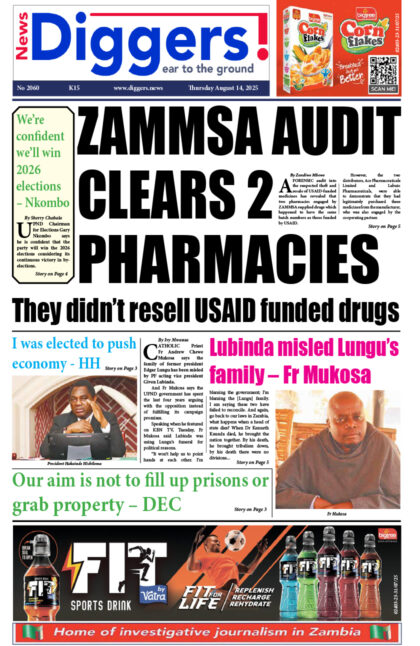ECONOMIST Prof Oliver Saasa says it is better for local indigenous investors to be given an opportunity and incentives to procure shares in existing and new mines as opposed to government increasing its shareholding through ZCCM-IH.
Mines Minister Richard Musukwa recently disclosed that government, through ZCCM-IH, was working towards increasing its stake of shareholding in mining firms, adding that he wanted to see ZCCM-IH and the Industrial Development Corporation (IDC) play a major role in mining operations for citizens to derive maximum benefits.
Prof Saasa, however, observed that although government’s intention might be good for the country, it could send a wrong signal to foreign investors because their proposal might be perceived as expropriation.
“Essentially, if you come to the operationalization of that policy stance, it would mean that government would want to either have new mines where they will have a stake, which is much larger than the current average; the current average is about 20 per cent. Or, they would want to actually buy more shares from existing mines. Now, wanting to buy more shares from existing mines and if it becomes mandatory then, of course, it means that it will send some eyebrows rising on the part of investors, who are already doing so. So, the act can be celebrated if the country has the capacity, but one has to be cautious of the possible effect on how the perception of how government or the country will be perceived in the investor community out there. So, yes, it may be a good thing, but please do that with caution without unnecessarily suggesting that government wants to assume a more strategic control in the ownership of an area, which is traditionally perceived to be opened up to private sector participation, mainly foreign investment, as well as indigenous local investors,” Prof Saasa said in an interview.
“There are a number of things that one has to take into account. Firstly, that is a policy decision that its credibility and may be an expression of a wish on the part of the investment arm in the mining sector, ZCCM-IH. So, at their level, it’s a mere expression of interest. But it’s a policy statement that can only get legitimacy of its coming from the Minister because it is something that catches on ring-fencing of increased interest in the mining industry by the government at a time when we agreed that the economy will be private sector-driven. Now, being private sector-driven does not mean equity shareholding by the government. But when you are really talking about getting to those levels as a policy stance and they even come from the Minister, then, you are really talking about somewhat diluting the assumption that is taken by those investors, both within the country and outside regarding the policy regime.”
And Prof Saasa, who is also Premier Consult managing consultant, argued that it would be better if government created incentives for indigenous Zambians to own shares in mines directly as opposed to through ZCCM-IH, given the country’s liberalized economy.
“A word of caution is merited here that, generally, it’s not the business of government to run business, it’s a principal that speaks to once you have liberalized and you have opened up, that’s how you market the country outside to the world, nobody should feel threatened by stances that suggest that the government either wants to expropriate or they want to diversify to a level where they begin to crowd out the private sector operators from certain segments of the economy. One would be more comfortable, I am hearing government saying, ‘we would like to encourage,’ through some instruments, concessions and what not, ‘we would like to encourage locals, Zambian domestic investors to increasingly own shares in mining activity, either existing or new ones and we are going to provide an incentive to ensure that there is more local investment rather than government investment’,” said Prof Saasa.
“That way, you are empowering locals, you are empowering local communities; it’s something that must be a conscious government policy. You cannot have a situation where more than half a century, the major strategic activity that controls about 70 per cent of foreign exchange is copper mining; a significant portion of it is still predominantly foreign. And I am talking foreign investors and domestic local investors, we would like to see increased entry of the private sector, Zambian indigenous private sector in mining and if you are talking about empowering local investors into mining through the incentive regime that will push them there, it will dilute and complement foreign investment. For me, that is music to my ears.”
























